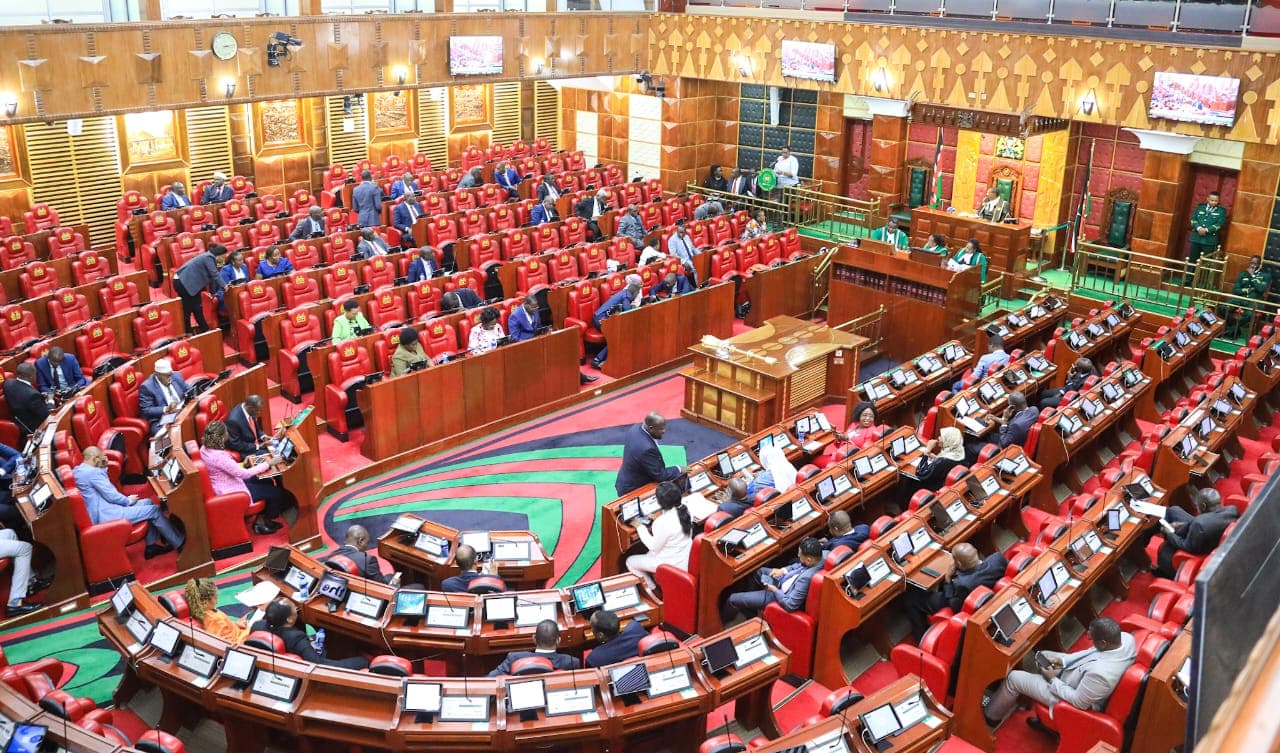We're loading the full news article for you. This includes the article content, images, author information, and related articles.
Kenyan lawmakers are advancing plans to integrate Artificial Intelligence into parliamentary operations for efficiency, while simultaneously racing to establish a national legal framework to mitigate risks of misinformation, job losses, and privacy breaches for the public.

Members of the Kenyan Parliament are championing the adoption of Artificial Intelligence (AI) to modernize legislative processes, even as they concurrently push for comprehensive national regulation to govern the technology's rapid societal expansion. A recent report by the Committee on Members' Services and Facilities, tabled on Monday, 24 November 2025 EAT, recommends integrating AI tools to enhance efficiency, transparency, and responsiveness in Parliament's functions.
The recommendation, chaired by Laikipia West MP Stephen Wachira, follows a benchmarking visit to the National Assembly of Zambia and aligns with the Parliamentary Service Commission's (PSC) Strategic Plan for 2019-2030, which envisions the creation of an "E-Parliament". One of the immediate practical applications proposed is the use of AI in parliamentary reporting. According to National Assembly Deputy Clerk Serah Kioko, this would significantly reduce the time taken to produce official Hansard reports, ensuring they are accurate, timely, and easily accessible without affecting the current workforce.
This internal push for modernization mirrors a broader national ambition. In March 2025, the Ministry of Information, Communications and the Digital Economy launched Kenya's National AI Strategy 2025–2030, a five-year plan intended to position the country as a continental leader in AI innovation. The strategy, which requires an estimated Ksh.152 billion for implementation, identifies key sectors for AI deployment, including agriculture, healthcare, finance, and public administration. The government's plan underscores a commitment to harnessing AI for economic growth and improved service delivery, a vision echoed by President William Ruto, who on Monday, 17 November 2025, urged universities to integrate AI into their curricula to equip graduates for a changing job market.
However, a parallel and more cautious narrative is unfolding within the same legislative body. A growing number of MPs have voiced significant concerns about the potential negative impacts of unregulated AI. This movement is spearheaded by Aldai MP Marianne Kitany, who has tabled a motion calling for the formulation of a robust regulatory and ethical framework to control the technology's potential misuse.
The concerns cited by lawmakers are extensive and directly relevant to the Kenyan public. They include the proliferation of AI-powered disinformation and "fake news," which Nambale MP Geoffrey Mulanya warned could cause societal conflict. Other highlighted risks are potential privacy breaches, algorithmic discrimination, and significant job displacement, particularly among the youth. This cautious approach reflects a deep understanding that while AI offers benefits in controlled environments like healthcare and manufacturing, its unchecked deployment poses substantial threats.
According to the 2022 Government Artificial Intelligence Readiness Index by Oxford Insights, Kenya ranks fifth in Africa and 90th globally, with a readiness score of 40.3 percent. This indicates a growing capacity for adoption but also highlights an urgent need for governance structures. Currently, Kenya has no specific laws to regulate AI. Legal experts note that the Data Protection Act of 2019, while a foundational piece of legislation, is insufficient to address the unique challenges posed by AI, such as automated decision-making and algorithmic bias. The recent controversy involving the Worldcoin project, which collected biometric iris data from Kenyans, served as a stark reminder of how quickly AI-driven initiatives can outpace existing regulatory frameworks, raising major privacy and data protection alarms.
The dual tracks of adoption and regulation underscore a critical juncture for Kenya. The government, through the State Department for Parliamentary Affairs, has affirmed its commitment to creating legislation that will anchor the National AI Strategy in law, ensuring a strong regulatory framework is in place. Lawmakers are advocating for a multi-faceted approach that includes not only legal guardrails but also a national public awareness campaign to educate citizens on the opportunities and threats of AI.
Furthermore, there is a strong push to embed AI education within the nation's technical training institutions to build a skilled workforce capable of navigating the new technological landscape. As Parliament considers using AI to streamline its own operations, its biggest test will be in crafting a people-centric policy that successfully balances technological innovation with the imperative to protect citizens' rights, security, and economic well-being in the age of intelligence.
Keep the conversation in one place—threads here stay linked to the story and in the forums.
Sign in to start a discussion
Start a conversation about this story and keep it linked here.
Other hot threads
E-sports and Gaming Community in Kenya
Active 9 months ago
The Role of Technology in Modern Agriculture (AgriTech)
Active 9 months ago
Popular Recreational Activities Across Counties
Active 9 months ago
Investing in Youth Sports Development Programs
Active 9 months ago
Key figures and persons of interest featured in this article